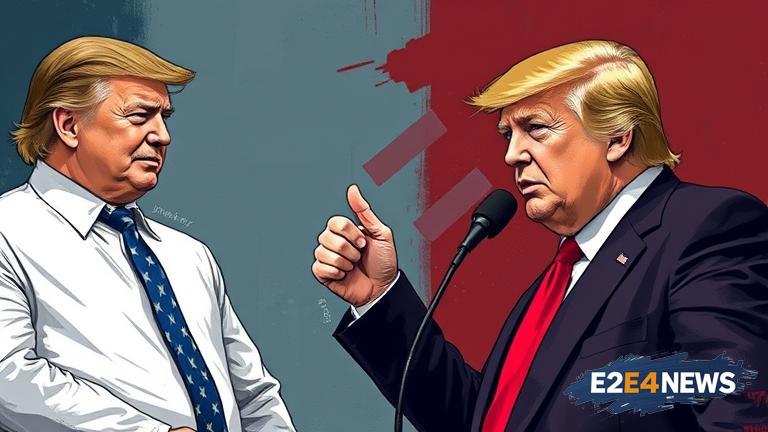The recent threat by President Donald Trump to impose a 25% tariff on imported goods has sparked a heated debate among trade experts and policymakers. According to a former US official, this threat is merely a negotiating tactic aimed at extracting concessions from trading partners. However, others warn that such a move could lead to a full-blown trade war, with devastating consequences for the global economy. The US has been engaged in a series of trade disputes with several countries, including China, Canada, and Mexico, over issues such as tariffs, subsidies, and market access. Trump’s tariff threat is seen as a means to pressure these countries into agreeing to more favorable trade terms. But critics argue that such a approach is unlikely to yield the desired results and could instead lead to retaliatory measures from affected countries. The former US official, who spoke on condition of anonymity, claimed that Trump’s tariff threat is a classic example of a negotiating tactic, designed to create a sense of urgency and uncertainty among trading partners. This tactic, known as the ‘madman theory,’ involves making unpredictable and aggressive moves to keep opponents off balance. However, trade experts warn that this approach is fraught with risks and could lead to unintended consequences. A trade war could result in higher prices for consumers, reduced economic growth, and job losses. Moreover, it could also lead to a decline in international trade and investment, as countries become increasingly protectionist. The US has already imposed tariffs on several countries, including China, Canada, and Mexico, and has threatened to impose more if its demands are not met. China, in particular, has been a major target of Trump’s trade policies, with the US imposing tariffs on over $360 billion worth of Chinese goods. Beijing has retaliated with its own tariffs on US goods, leading to a significant decline in US exports to China. The trade tensions between the US and China have also had a ripple effect on other countries, with many exporters facing uncertainty and disruption. The European Union, for example, has been caught in the crossfire, with several member states facing tariffs on their exports to the US. The trade war has also had a significant impact on the global economy, with the International Monetary Fund (IMF) warning of a decline in economic growth and trade. The IMF has urged countries to resolve their trade differences through negotiations and to avoid protectionist measures. Despite the risks, Trump remains committed to his trade policies, which he believes are necessary to protect American jobs and industries. However, critics argue that his approach is misguided and could lead to long-term damage to the US economy. The former US official’s comments have sparked a debate about the effectiveness of Trump’s negotiating tactics, with some arguing that they are necessary to achieve his trade goals. Others, however, warn that such an approach is unlikely to yield the desired results and could instead lead to a trade war. As the trade tensions continue to escalate, it remains to be seen whether Trump’s tariff threat will achieve its intended goals or lead to a full-blown trade war. The global economy is watching with bated breath as the US and its trading partners navigate the complex and uncertain world of international trade. The outcome of these negotiations will have significant implications for the global economy, with the potential to either boost economic growth or lead to a decline in trade and investment. In conclusion, Trump’s tariff threat is a complex issue with far-reaching implications for the global economy. While some see it as a negotiating tactic, others warn of the risks of a trade war. As the situation continues to unfold, it is essential to monitor the developments and assess the potential consequences of Trump’s trade policies.
